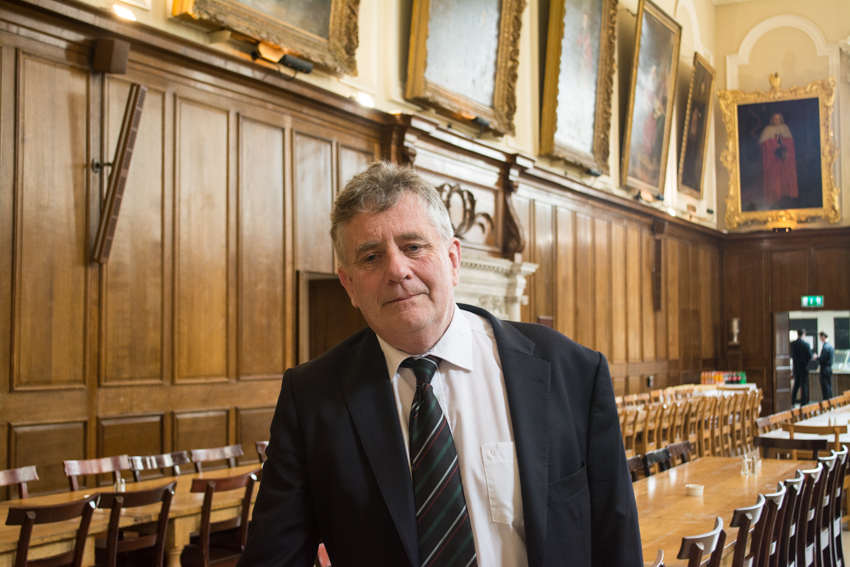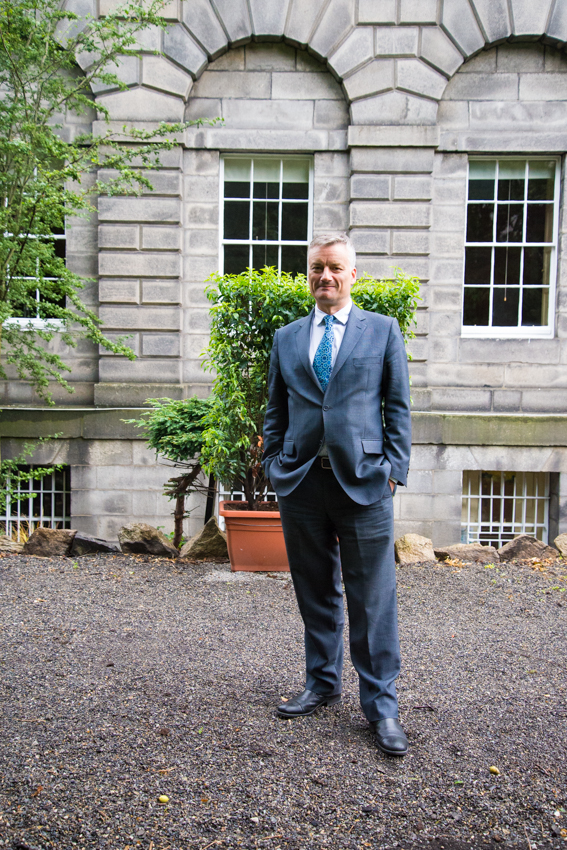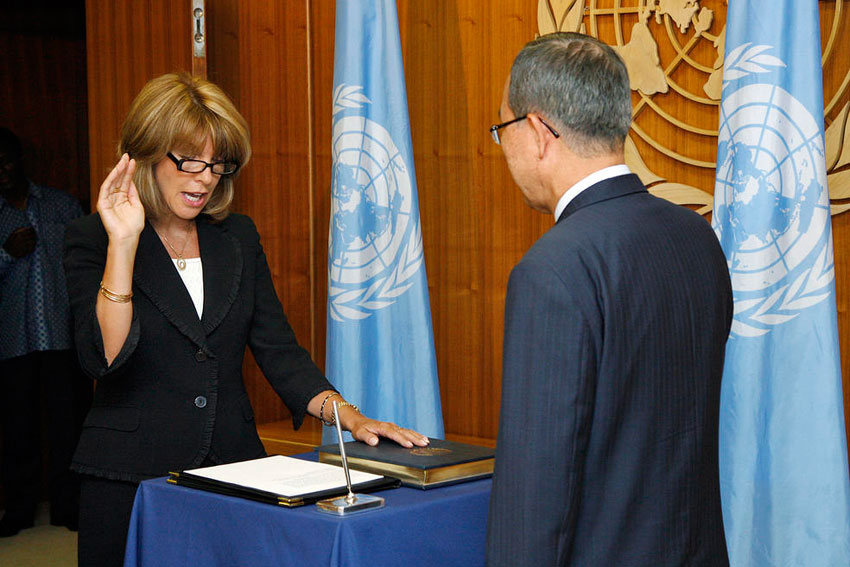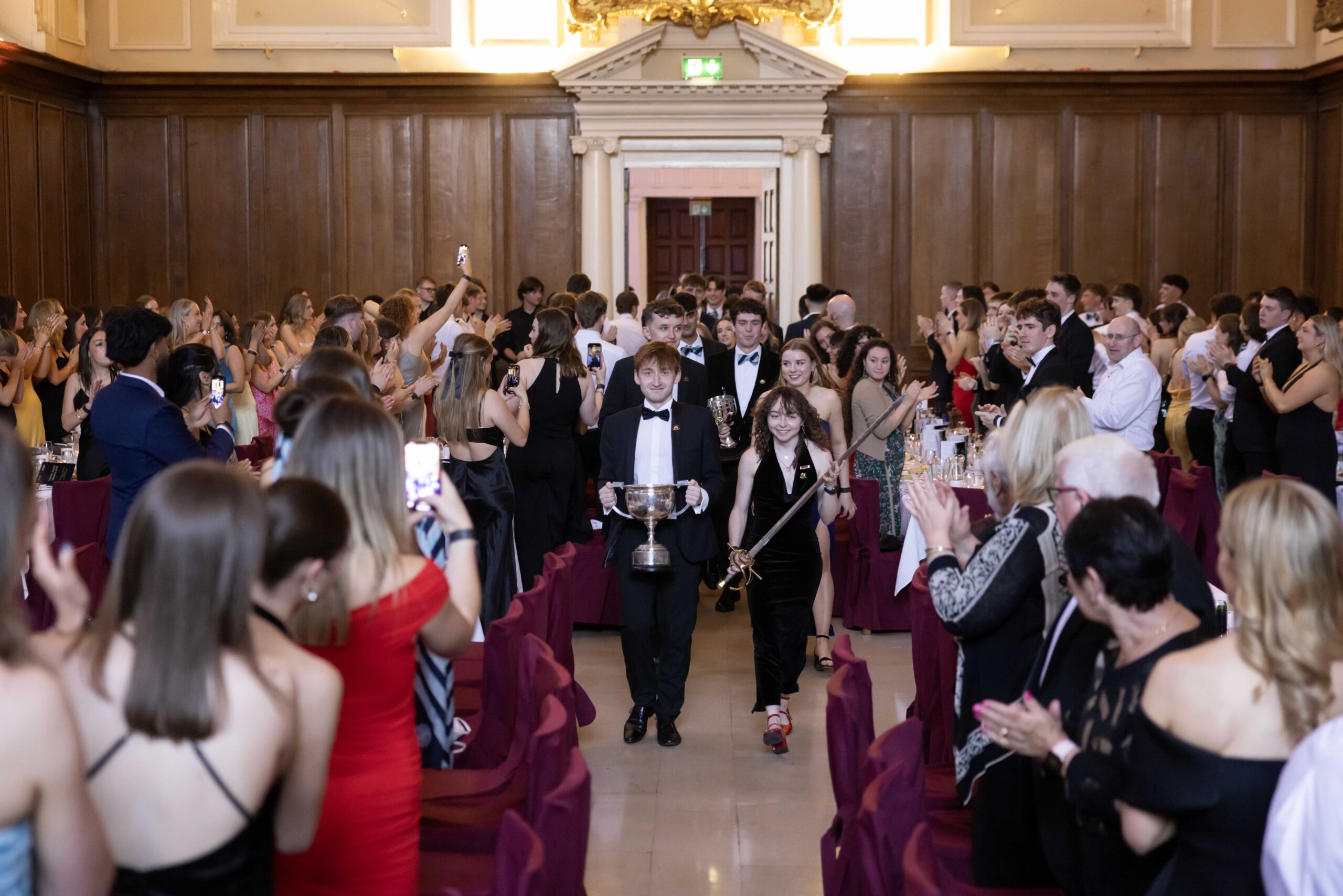Forty-six years ago Seán Barrett walked into college for the first time. He then left having completed both his economics undergraduate and postgraduate degree. After short stint across the Atlantic in Canada, he returned to Ireland to take up a position as a lecturer in Trinity’s Department of Economics. Although he was earning less as a lecturer in Ireland than he had as a graduate in Canada, Barrett decided that returning to Ireland to work in Trinity was the right thing to do. “I was back on holidays when the vacancy occurred”, Barrett explains. Yet, while he wanted to return, he concedes that “the Ireland of that time was not the most liberal or interesting”.
As we sit looking out over College Park from the Kilkenny Design restaurant Barrett recalls just how different being a student was in 1970. The episcopal “ban” on Catholics attending Trinity had only just been removed. Though he was not a student of Trinity, Barrett said the College was an “old-style model of university, which not that many people attended or wanted to attend – I think that Trinity was short of students. Having an archbishop banning the majority of people from attending didn’t really help”.
Trinity has changed from the student-based focus where students were everything. Some of my predecessors as Junior Dean were invited to their students’ weddings. And they’d be invited to the next generations weddings as well
“I loved it. I thought there was no place like it”, he smiles as he takes a sip of his coffee. Although Trinity is now a very different place, he believes that it shouldn’t be taken for granted. As a member of Trinity’s academic staff and former Junior Dean, Barrett encourages students to engage with their lecturers. He recalls what Prof AA Luce, after whom the now-demolished Luce Hall was named, said in his lectures and hopes it still rings true: “I hope you learn a half as much from me as I know you’ll learn from each other.” Barrett, now putting on a solemn face and making his voice an octave lower, imitates the professor: “Those of you from agricultural backgrounds will find college quite a change. Here books are everything, bullocks are nothing.”
As Barrett’s daughter has just sat her leaving certificate, it is not surprising that he emphasises the transition between secondary and third-level education:“It’s not school where you don’t know who wrote the book or who marks the exams and who writes the questions. It’s a much closer relationship.” While relationships between lecturers and their students have always been central, he believes the focus on students in general is becoming less important: “Trinity has changed from the student-based focus where students were everything. Some of my predecessors as Junior Dean were invited to their students’ weddings. And they’d be invited to the next generations weddings as well.”
Barrett is concerned that Trinity has become too focussed on research, necessitated by the funding situation most academic staff and researchers find themselves in. “I think the research versus lecturing balance has gone about as far as it should go”, states Barrett. He also tells me that what students have to do nowadays to get to university is a “form of torture” given the “incredible hoops” students have to jump through to receive a place in Trinity. While acknowledging that points in Trinity are high, he believes it is the sense of tradition and academic prestige that encourages students to put Trinity as their first choice on the CAO. “It took us [424] years to develop what we have behind those railings”, affirms Barrett as he looks down over Nassau St and across at Trinity.
Surprise yourself. Do something that you haven’t done before. Get involved in the Choral Society. Engineers sing, historians sing
When it comes to the academic side of college, Barrett advises students to get used to regular study and the habit of “spending the odd hour” in the library: “Don’t just hang around, get in there. Our library would be the envy of any other university.” He also urges involvement with extracurriculars like societies and sports teams: “Surprise yourself. Do something that you haven’t done before. Get involved in the Choral Society. Engineers sing. Historians sing.” He can’t resist quipping that “the standard of singing [in chapel] certainly exceeds that of the preaching anyway”.
Although Barrett believes life for students is tough, particularly with the current housing crisis, he is hopeful that being a student can and will be enjoyable for those studying: “You’ll never be in the kind of neighbourhood again as in these four years for the accomplished fellow students, who are by definition are the most accomplished on the island of Ireland and ditto the best staff”.
Barrett certainly has Trinity running through his veins as a lecturer, former senator, former president of the soccer club, President of the Dublin University Business and Economics Society (DUBES), Vice-President of the University of Dublin Choral Society and the College Historical Society (the Hist), as well as being the long-serving Junior Dean. Even with all these titles he was still given a piece of advice from a soon-to-be fresher as he walked out the door to meet for our interview: “Don’t be embarrassing, Dad.”
Correction: December 18th, 2018
An earlier version of this article incorrectly referred to Barrett as a former student of Trinity throughout. In fact, Barrett attended UCD for his undergraduate degree and has only been linked to the College since he began working in Trinity .










